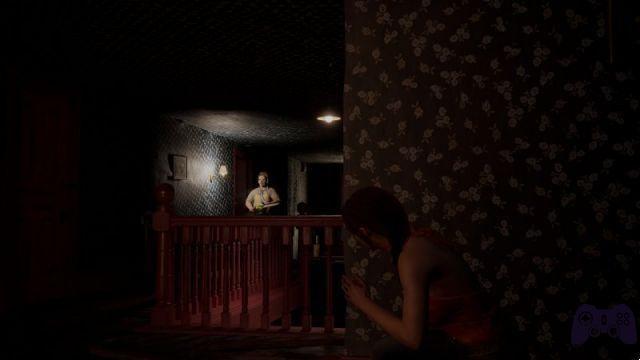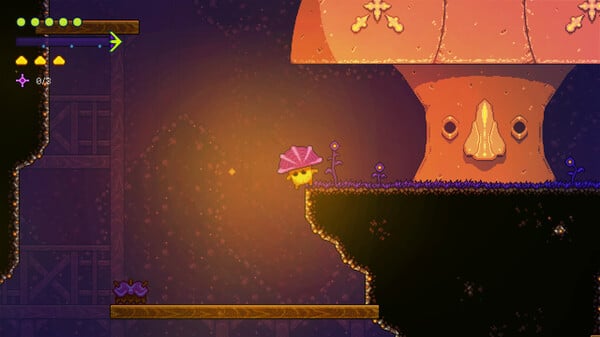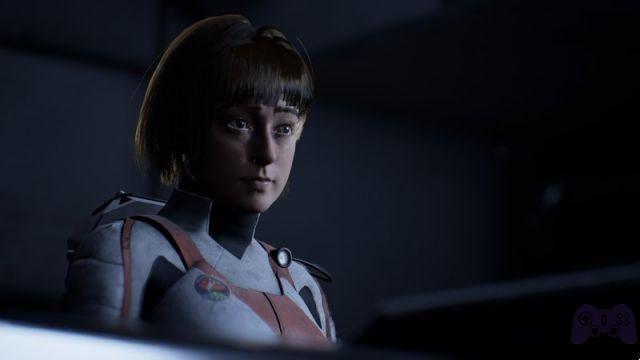Anniversaries are always the right opportunity to return to the market and offer something new (or old, but renewed) to your fans. This time it's the franchise's turn Utawarerumono, perhaps completely unknown to most readers, although in reality in recent years it has managed to gain, even in the West, a niche for very loyal enthusiasts. The same enthusiasts who were certainly not happy, last year, to learn of the "delay in publication" of Monochrome Mobius: Rights and Wrongs Forgotten on European soil.
In fact, Monochrome Mobius has been available in Japan since November 2022, while we had to wait almost a whole year for localization (in English) and associated distribution. In fact, you will soon be able to accompany Oshtor and Shunya on their respective adventures across the continent; which we have obviously already done for him Monochrome Mobius Review: Forgotten Rights and Errors, that's why we're here to tell and evaluate the highlights of the production, so you know what to expect (assuming you've resisted the temptation to enjoy the entire adventure in the original language on YouTube or Twitch).
The plot of Monochrome Mobius and the search for the father
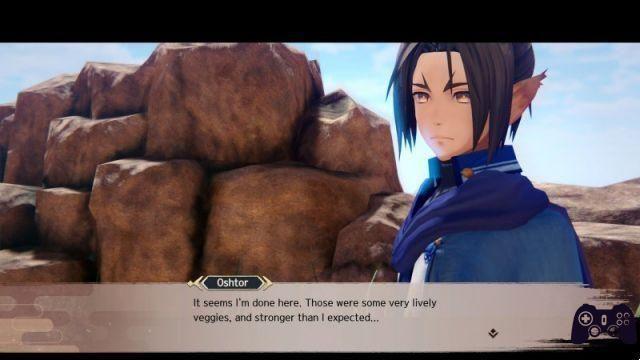
Read without fear of spoilers: we will say a few words about plot of Monochrome Mobius precisely because the latter represents one of the most successful aspects of the entire production. For once (it's actually not that obvious) the main narrative acts as a real, sensible glue for the encounters between the main and supporting characters, housing their respective stories and personal ambitions in a coherent background. The fundamental theme, however, remains the search for the father and directly involves the protagonist, Oshtor (although it naturally also acquires symbolic meanings).
The narrative premise is easily summarized. host He lives with his mother and younger sister in a border town in the Ennakamuy region, in a kind of feudal Japan steeped in magic and monsters, as well as strongly influenced by Ainu culture. One day, while trying to solve a local problem related to some missing supplies, he finds himself shunya, a warrior as skilled with the katana as Oshtor. In a suggestive but understandable manner, Shunya reveals to the boy that his father, long thought dead, is actually still alive, even if his whereabouts are currently unknown.
Thus begins a travel which will lead both - with the incorporation of the other members of the group - to the country of Arva Shulan, mysteriously absent from the kingdom's maps; The search for the father will connect to the main plot shown in the opening movie, in which Shunya crosses a portal to seek help at the time of the attack on the enemy house. Despite some more or less predictable moments, the story of Monochrome Mobius is really interesting, as well as long-lasting: to reach the end (open, and perhaps rightly so...) will take you up to fifty hours. , if you dedicate yourself to all the side missions.
The applause also goes to character characterization, at least the main ones: in addition to Shunya and Oshtor, the young Munechika and the swordsman Mikazuchi also show a coherent but not stereotyped personality, which will be enriched with more facets thanks to the events experienced. However, the narrative style is still Japanese, so (although less invasive than usual) some less successful but "necessary" sketches for the reference genre are expected.
Gameplay: Turn-based combat and… a strange ring
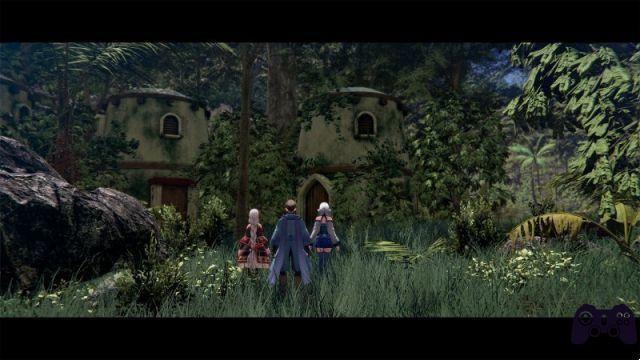
Monochrome Mobius presents the structure of a Turn-based RPG, all strictly in 3D: the only two-dimensional sequences are reserved for the numerous dialogue phases, in the style of a visual novel. The alternation of views, in any case, does not cause discomfort and corresponds well to the activities that the title basically proposes, that is, the exploration of the environments, the fights against monsters and human enemies, and finally the necessary interaction between the different characters . for the plot to continue.
The most original aspect lies in the combat management. It is true that the types of attacks are quite basic (not to mention small, in terms of the difference between physical offensives and special abilities), but the management of the turns is sufficiently stimulating. The latter, in fact, alternate based on a curious pattern of concentric rings, displayed at all times in the upper left part of the screen: when the indicator of a specific warrior reaches its specific position along the circle of the ring, then your action can be performed. The strategic element consists of the possibility of "approximating the overlaps" by attacking earlier than planned, or by continually moving the enemy's turn away by paralyzing him with subsequent attacks.
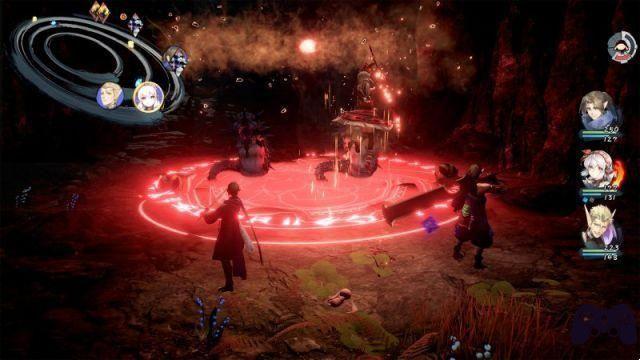
It is a system that is more difficult to explain than to learn, naturally complicated by the possibility of potentiate your team and learn new moves based on the four characters in the party. The downside to all of this is not so much the system itself, but the difficulty level of Monochrome Mobius, which is actually calibrated towards low, even if you set it to extreme mode from the start. For a real level of challenge, trust us and carefully avoid your heroes' upgrades; Otherwise, you won't need anything to defeat even the bosses in the different areas of the game.
Talking about strengths and weaknesses
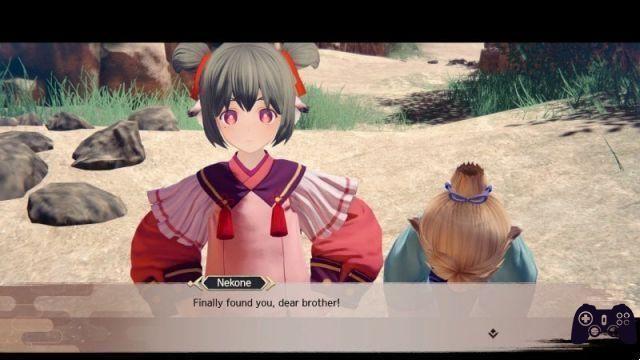
We have already listed among the merits of Monochrome Mobius at least the goodness of the main narrative and the characterization of the characters: let us now add the longevity, notable for what in no case can be considered a triple A, and the artistic direction as a whole. However, we cannot help but underestimate the presence of defects equally notable, especially those related to the technical sector.
The videos run through the game engine, as do the two-dimensional sequences, but the exploration of towns and wild lands is really weakened by too few elements on the screen, by graphics that are sometimes two generations old, and by a monstrous design in less questionable. We also add that, with the exception of combat, the "linearity" of Monochrome Mobius responds to all the elements of predictability inherent to the genre: you visit a village, fight monsters to level up, follow the dialogues, strengthen the group and Let's start again. new, without any real additional ideas. It must be said that, by now, users may have stopped searching for them.
Conclusions
Tested version PlayStation 5 digital delivery Steam, PlayStation Store Price 59,99 € Holygamerz.com 6.0 Readers (2) 8.2 your voteMonochrome Mobius: Rights and Wrongs Forgotten is an RPG that can essentially boast two threads: story and character characterization. Everything else works, but is taken from countless almost identical titles: exploration, "leveling", interactions with the town of the moment, various types of equipment and skill upgrades. What is original is at least the management of the combat system, entrusted to a ring scheme, which could however have been deeper, also thanks to the extreme simplicity with which it is possible to complete any combat in a few seconds. Utawarerumono fans, however, will love it, as anyone is able to forgive even the most obvious flaws of their loved one. Oshtor and Shunya say thank you.
PRO
- intriguing story
- Well characterized characters
- long lasting
AGAINST
- Technically very weak
- Almost non-existent level of difficulty.
- Many mechanics and ideas, but almost all of them already seen (and better)




